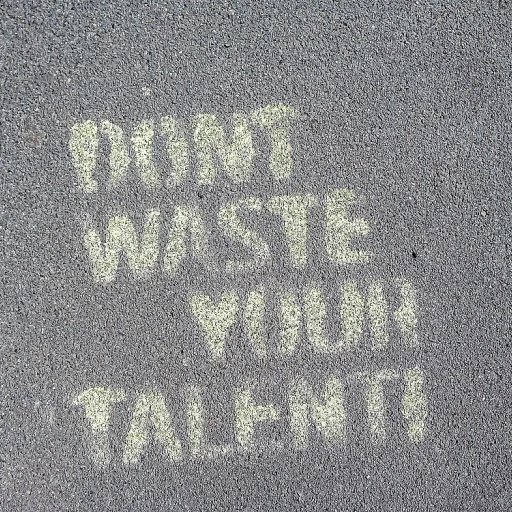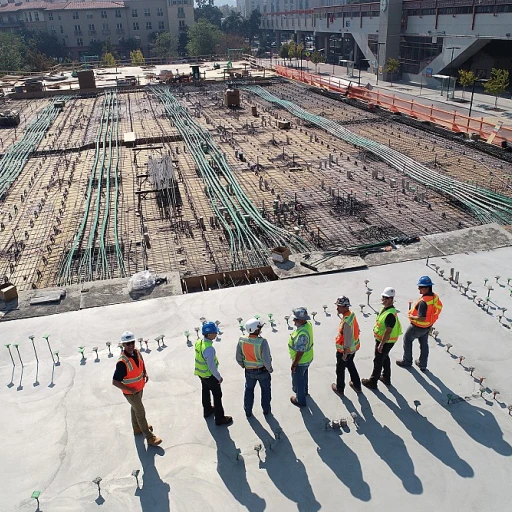
Understanding Resume Tenses
Choosing the Appropriate Tense for Accomplishments
Understanding which tense to use when crafting your resume can significantly affect how your career story is perceived. Resumes are more than just a list of jobs and skills; they are a professional narrative crafted to highlight your accomplishments and experience effectively. Your past roles and what you’ve accomplished in previous positions typically use past tense. This separates completed projects from tasks related to your current job and responsibilities, which are often conveyed in the present tense.
When documenting work experience, certain conventions should be followed. Bullet points filled with dynamic action verbs can drive home the impact you’ve made in your previous roles. The resume should clearly indicate the transition from one job to the ongoing responsibilities of your current role.
- Past Tense: Recognizes actions that have been completed, ideal for previous jobs. For example: "Managed a team of 15 associates, leading to a 20% increase in productivity."
- Present Tense: Used for current responsibilities and roles you actively manage, implying ongoing engagement. For example: "Manage a team of 10 skilled engineers, improving daily task efficiency."
A tense resume often confuses readers if the tenses are not appropriately matched with the corresponding job details. This section's insights not only inform your writing style but also help in crafting the vital segments such as the cover letter. By maintaining consistency and clarity in tense usage, you're setting the stage for a cohesive presentation of your journey across your career.
If this resonates with your search for a balanced workload while working remotely, explore more on maintaining the optimal workload in remote settings to align with your career objectives.
Present Tense: When to Use It
When Present Tense Fits Your Resume
Using the present tense in a resume is suitable in certain circumstances, providing clarity and emphasizing your current role and responsibilities. For instance, when describing ongoing activities or projects at your current job, present tense is often the preferred choice. This approach allows you to portray your skills and accomplishments as active and relevant.
One major advantage of using present tense in resumes is its ability to highlight tasks you are currently managing. This is especially effective when detailing your role in managing a team or leading a project. For example, you might use action verbs such as "manage," "lead," or "coordinate" to describe your current responsibilities effectively.
The present tense works well when you want to emphasize the continuity of your skills and abilities. If you're actively using a particular skill, ongoing projects should reflect this skill in your descriptions. Additionally, a consistent use of tenses throughout the bullet points under each job in your resume should be maintained to ensure coherence.
While the present tense is valuable for describing current work experience, it is crucial to transition into past tense for roles you have completed. This creates a clear distinction between ongoing and completed projects, providing prospective employers with a transparent view of your professional journey.
For more insights into effectively incorporating the present tense in your resume, consider learning about mastering skills for remote work success to craft a compelling narrative around your career path.
Remember, the use of tense in resumes requires careful consideration to effectively convey your career accomplishments while ensuring the content remains readable and engaging.
Past Tense: The Right Context
Leveraging the Past Tense in Your Resume
When it comes to highlighting your previous roles and accomplishments, the past tense is your go-to choice. By utilizing this approach, you can effectively convey your successes and tasks that have been completed, providing clear and precise accounts of past experiences in your career. Using action verbs in the past tense, such as "managed," "developed," or "coordinated," offers concrete examples of your expertise and skill sets. This retrospective lens allows potential employers to see what you have achieved in former positions and affirms your capability to handle similar responsibilities moving forward. Given the nature of remote work, where adaptability and self-management are essential, showcasing your accomplishments in past roles is crucial. It enables employers to grasp how well you might navigate future job dynamics. For instance, when describing your role in a previous team, say "completed projects" or "led a team," illustrating tasks you have effectively finished. This helps in painting a picture of your professional journey and solidifies your candidacy. Remember to keep narrative consistency throughout your resume by distinguishing between current and previous roles. The current job usually employs present tense, while past roles adopt the past tense, striking a balance that enhances the clarity and cohesiveness of your resume. When crafting bullet points under previous jobs, consider each listed responsibility or achievement as a story element that contributes to a broader narrative of your employment history. This ensures that your resume should not only inform but also engage those evaluating your application. For more nuanced distinctions in resume tenses, visiting resources can further enhance your understanding. By refining your use of tenses in job descriptions, you can convey your work experience effectively, setting a solid foundation for successful remote work and career progression. If you are seeking potential opportunities for young individuals, check out this guide on opportunities for young teens in remote work.Remote Work: Unique Considerations
Considerations for Resumes in Remote Work
When crafting a resume for a remote work role, unique considerations come into play that aren't typically present in traditional job applications. Understanding how to properly use both past and present tenses can help showcase your skills and accomplishments, particularly when transitioning to or from remote work settings. For remote job applications, emphasis should be placed on showcasing skills and experiences that highlight your ability to work independently and manage your time effectively. Ensure that your use of tenses remains consistent and appropriate.- Current Roles and Projects: When describing your current job or role, use present tense. This communicates ongoing responsibilities and active engagement. For instance, "Manage team communications" or "Coordinate remote events" succinctly encapsulates ongoing commitments.
- Past Accomplishments: Any completed projects or past roles should be articulated in past tense. This provides a clear history of your career and showcases the successes you have achieved. For example, "Completed a comprehensive report on remote work trends" or "Pioneered the remote onboarding process for new hires."
- Integration of Action Verbs: Strengthen your resume by integrating powerful action verbs to illustrate your contributions, whether in past or present tense. Opt for verbs that denote leadership and initiative, such as "initiated," "devised," or "facilitated."
Common Mistakes to Avoid
Avoiding Common Resume Writing Pitfalls
Creating a resume that precisely reflects your experience and skills can be a daunting task. Misusing tenses is a frequent mistake many fall victim to, which can hinder the clarity and impact of a resume. Understanding when to use past or present tense is crucial.
For current roles and responsibilities, using present tense is generally appropriate. This may include phrases like "manage team" or "oversee projects." However, any completed projects within the same role should be described using past tense, such as "completed redesign of the invoicing system."
When detailing past work experience, you should employ past tense consistently throughout these sections. This applies to actions and responsibilities in positions you've previously held. Sentences should start with strong action verbs to underline accomplishments, like "led," "developed," or "implemented." Such verbs enhance the clarity and dynamism of your professional narrative.
As you craft a cohesive resume, remember that maintaining consistent tenses within each job role is essential. Avoid mixing past and present tenses indiscriminately as it can lead to confusion. A resume should be as clear and concise as possible, serving not only as an introduction to your abilities but also as a testament to your attention to detail in professional writing.
In addition to verb tense consistency, consider the overall structure and readability of your resume. Using bullet points to list responsibilities and achievements makes the document easier to scan, allowing potential employers to quickly understand your capabilities and career progression. Ensuring your resume is neatly formatted and free from grammatical errors reinforces your professionalism.













